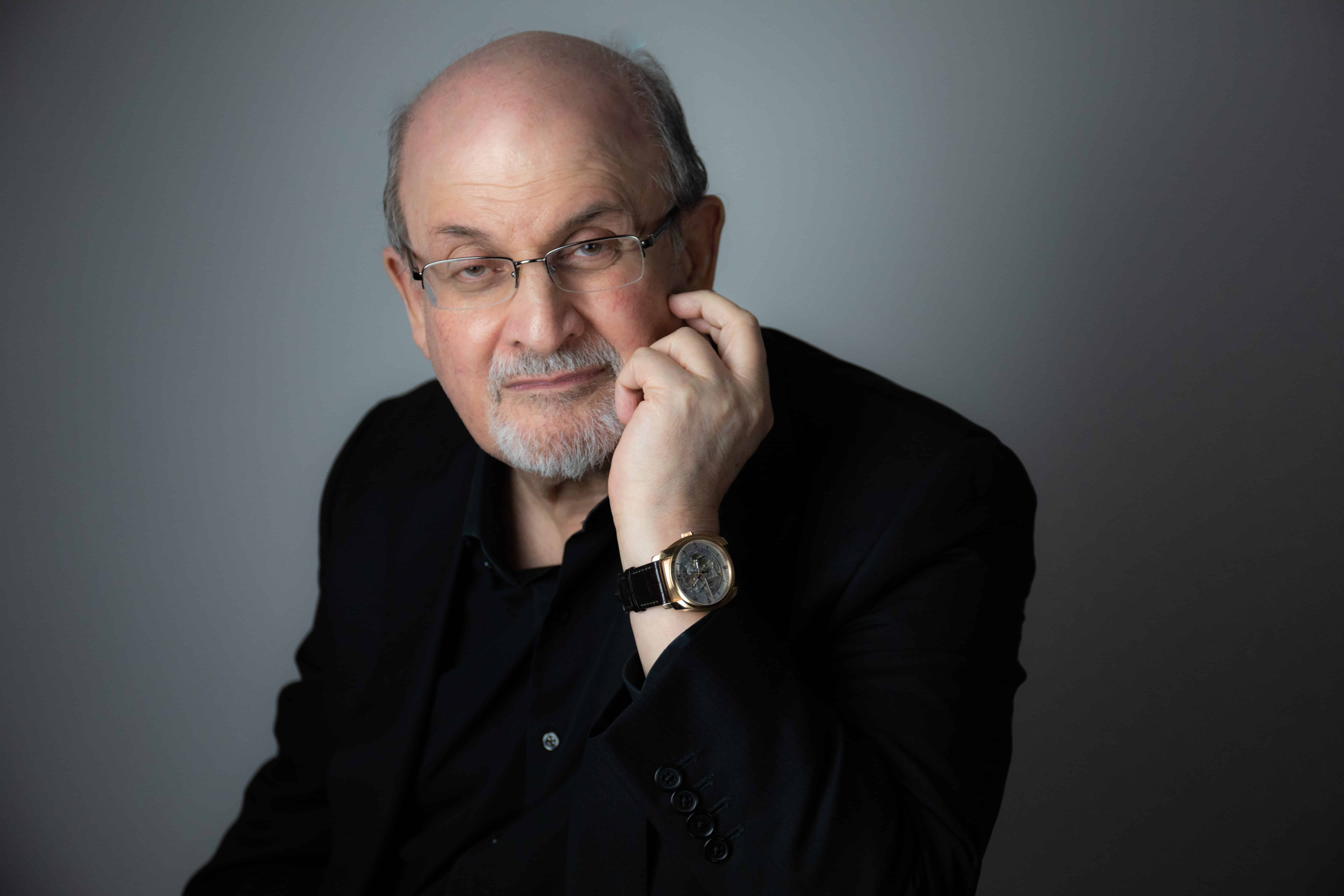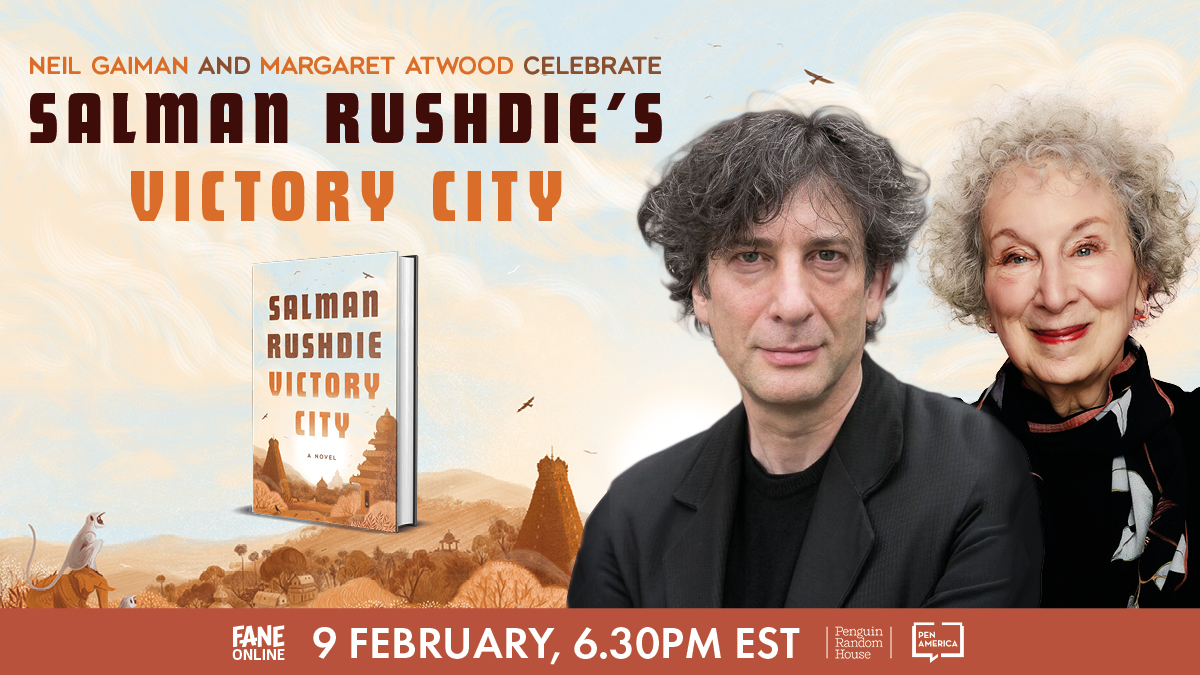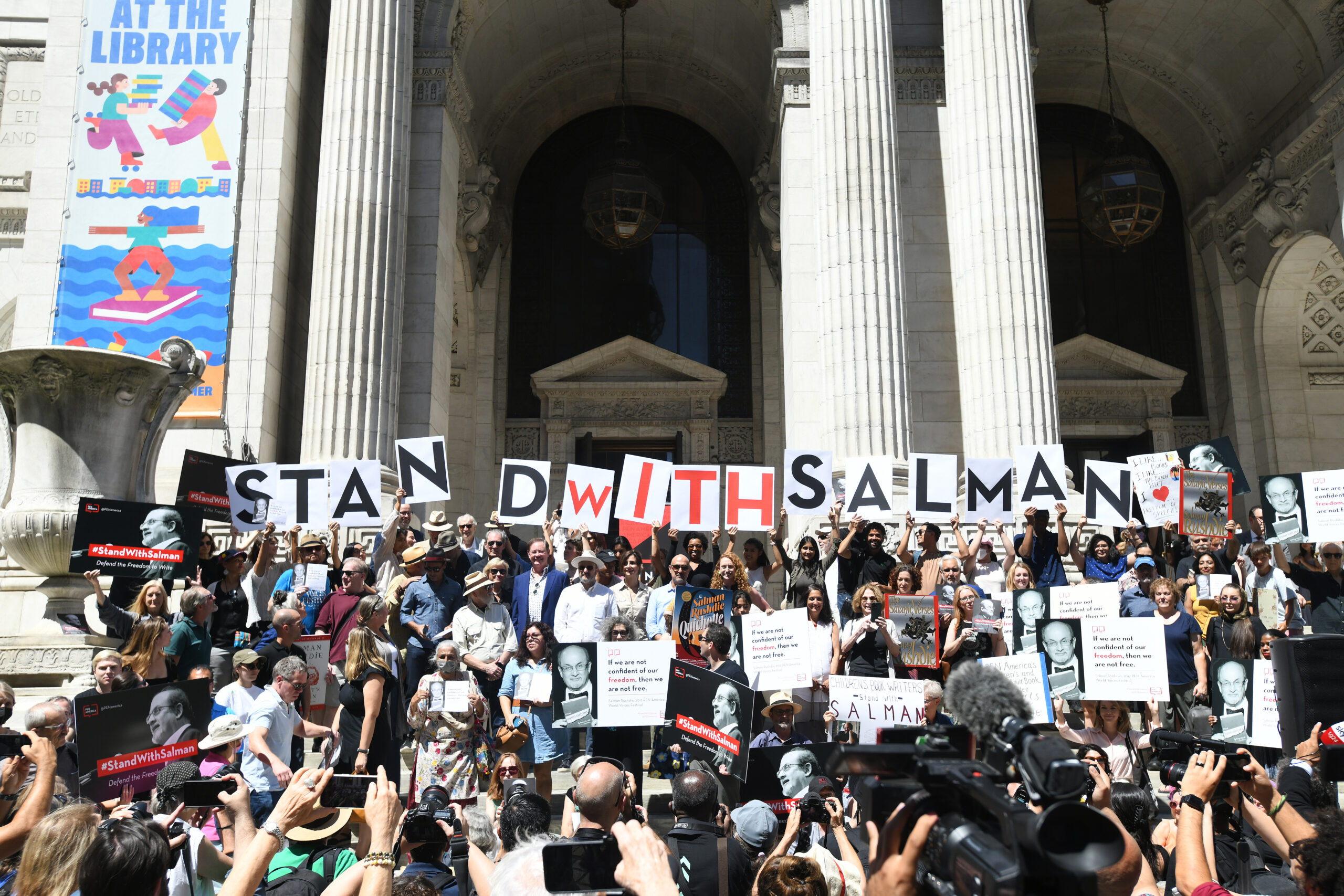Salman Rushdie’s New Novel Turns a Spotlight On the Enduring Power of Stories

Photo by Rachel Eliza Griffiths
By Suzanne Trimel
Though the manuscript for Victory City was delivered to his publisher weeks before Salman Rushdie was savagely attacked and injured last Aug. 12—losing an eye in the assault—the new novel due out Feb. 7 brings a note of eerie prescience as the book’s hero is blinded by an angry rival.
Asked if there is something she yearns for, a secret desire, Pampa Kampana replies: “My time of desiring is over. Now everything I want is in my words, and the words are all I need.”
The publication of a new novel by Rushdie is always a high point on the literary calendar and Victory City brings added celebration and excitement for readers, not least because his towering voice endures.

At the core of his 15th novel— its title alone conveying triumph—is Rushdie’s reflection at age 75 on the primacy of storytelling and the written word, an especially resonant message at this alarming moment of school book bans and classroom censorship across the United States.
The release of the book comes just six months after an assailant stabbed him at least ten times as he took the stage in Chautauqua, New York to deliver a lecture. Still recovering from his injuries, Rushdie will be absent from the customary author events and the airwaves as Victory City is released—among this year’s most anticipated books.
But writers are coming forward to champion his storytelling genius.
The centerpiece is a free event that will be broadcast online at 6:30 p.m. EST on Feb. 9 featuring a conversation with literary stars Margaret Atwood and Neil Gaiman, organized by author and critic Erica Wagner.
Atwood and Gaiman were both present last Sept. 12 at a PEN America centenary symposium in New York City that became as much a celebration of Rushdie, who was supposed to be among the featured authors on stage, too, but for his injuries.
Suzanne Nossel, PEN America CEO, said: “The excitement and gratitude we feel for Salman’s return to the literary spotlight can’t be understated. Since August, we have been sustained by solidarity across the globe—in the public readings of Salman’s books and the outpouring of messages of concern. Now we have a moment to be inspired once again by the insight and beauty that Salman brings to his work and we will seize it with hope, grateful for this singular talent.”

MANHATTAN, NY, AUGUST 19, 2022 PEN America holds a rally in support of writer Salman Rushdie at the New York Public Library in Manhattan, NY. Authors read passages from his books. 8/19/2022 Photo by ©Jennifer S. Altman All Rights Reserved
In public comments, his friends have recently attested to his resilience and the progress of his recovery, reporting that he is looking ahead to new writing projects.
Colum McCann, the novelist and friend of Rushdie’s, told The New York Times: “He is saying something quite profound in ‘Victory City.’ He’s saying, ‘You will never take the fundamental act of storytelling away from people.’ In the face of danger, even in the face of death, he manages to say that storytelling is one currency we all have.”
The Booker Prize-winning author, whose novels have been translated into 40 languages, was PEN America’s president from 2004-06 and over the years since, has continued to be a tireless defender of free speech and free expression in his public appearances and writings. The day he was attacked, he and Suzanne Nossel had been emailing about the difficult circumstances writers in Ukraine face and talking about what support might be offered to them.
Rushdie’s legacy at PEN America includes establishment in 2005 of the World Voices Festival, an annual event bringing international writers to audiences in New York City and Los Angeles that will take place this year May 10-13. He galvanized the room during a writers’ congress last year by emphasizing the important role that writers have as truth-tellers against threats to democracy.
During the Emergency Congress of Writers, he said: “A poem will not stop a bullet, a novel cannot defuse a bomb. But we are not helpless … We must work to overturn the false narratives of tyrants, populists, and fools, by telling better stories than they do – stories in which people might actually want to live.”
He was preparing to talk about the United States offering asylum to writers and artists in exile— as a place of sanctuary for creative expression— at the Chattauqua Institute when he was stabbed. His assailant later declared himself to be an admirer of the late Iranian Supreme Leader Ayatollah Ruhollah Khomeini. The fatwa, or edict, that Khomeini issued in 1989 calling for Rushdie’s death—provoked by his novel published a year earlier, The Satanic Verses—forced Rushdie into hiding for a decade.
In Victory City, Rushdie, a dual American and British citizen and a New Yorker for two decades, returns to his birthplace, India, for inspiration. The book is a sweeping story centered on the Vijayanagara Empire, which ruled southern India from the 14th to the 16th centuries, told by Pampa Kampana, the 247-year old woman who created it.
After witnessing her mother’s death as a girl, Pampa is blessed by a goddess, who tells her to create a new civilization from her own imagination over the coming centuries. The story chronicles an intra-dynastic rivalry sparked by Pampa’s foiled bid to bring about lasting equality of gender, sexuality and creed during her short-lived reign as queen.
A week after the attack on Rushdie, PEN America organized “Stand with Salman” on the steps of the New York Public Library, which featured a dozen noted authors reading from his works.
Nossel, the PEN America CEO, spoke before hundreds gathered at the Manhattan landmark along with a global audience online: “Not even a blade to the throat could still the voice of Salman Rushdie,”
With the release of his latest novel, readers the world over, recalling her words, may respond in the days ahead with a silent nod of gratitude.
Suzanne Trimel is a consultant on communications and media for PEN America.






